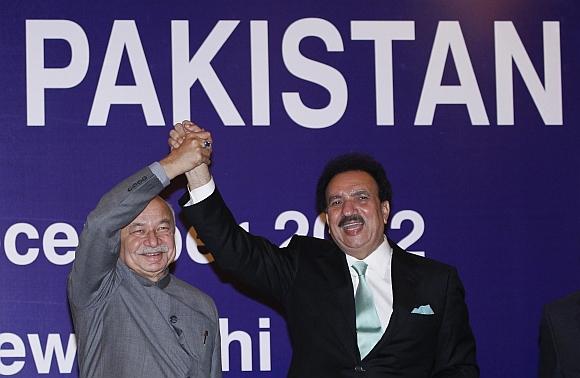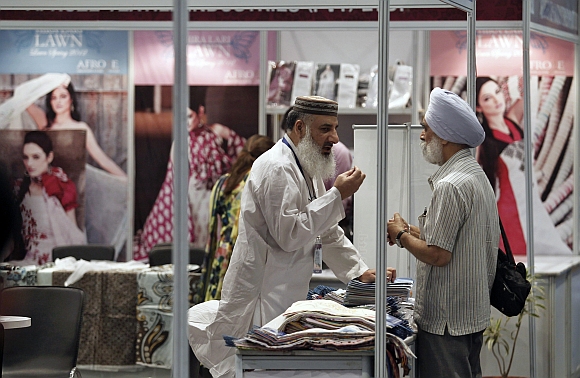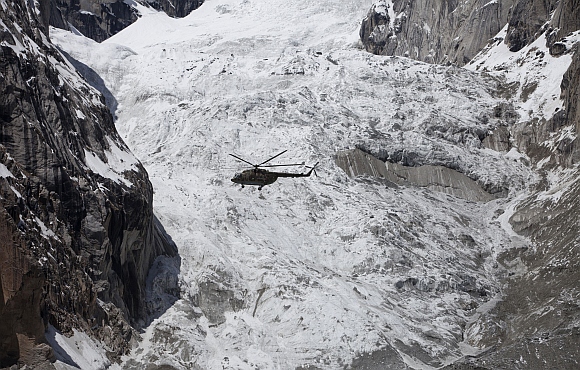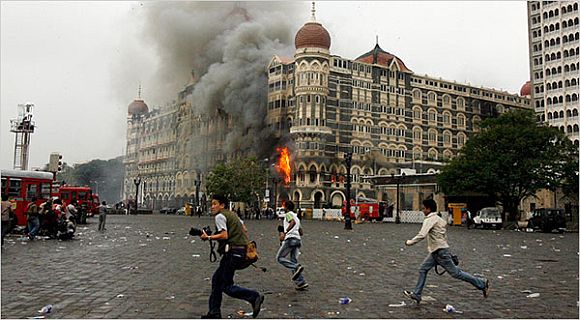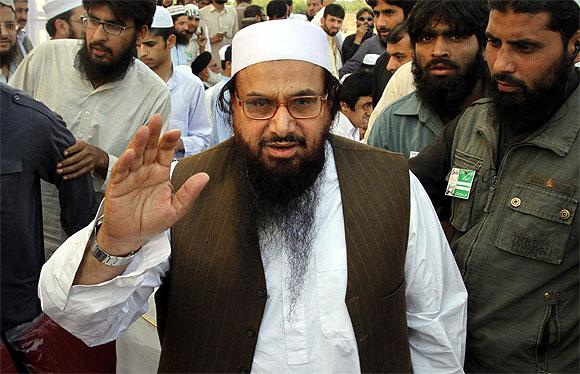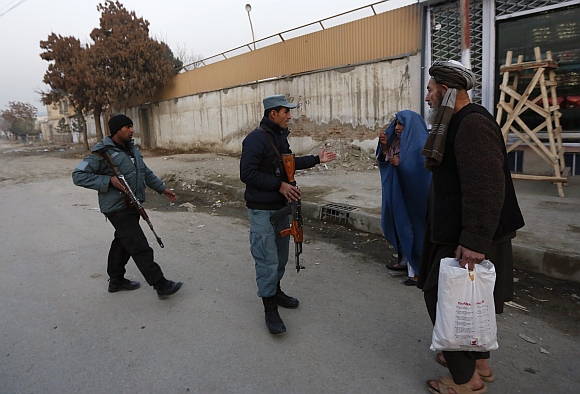 | « Back to article | Print this article |
Indo-Pak ties 2012: Visa deal inked, 26/11 unresolved
Pakistan and India took several steps to improve their ties this year, including through the signing of a landmark visa pact, even as Islamabad struggled to put its relationship with Washington on an even keel while seeking a greater role for itself in Afghanistan ahead of the pullout of foreign forces.
As the year drew to a close, Pakistan and India implemented the new visa agreement, whose signing had been delayed from May to September, largely due to opposition from Interior Minister Rehman Malik.
The pact introduced new categories for group tourist and pilgrim visas and eased restrictions on young children and senior citizens.
Click NEXT to read further...
MFN-status angered some trade lobbies
As the Pakistan People's Party-led government began gearing up for the general election scheduled to be held sometime between March and May next year, it also put the finishing touches to the process for granting the Most Favoured Nation-status to India.
After a series of contradictory statements from officials and ministers earlier in the year, Pakistan government said it was committed to phasing out a negative list regime for trade and giving India MFN-status by the beginning of next year.
The announcement angered some trade lobbies, especially in the textiles, automobile, pharmaceutical and agricultural sectors, which mounted a concerted campaign in the last few months of the year and urged the government to liberalise trade relations with India in phases.
The move to give MFN-status to India was also opposed by the Defa-e-Pakistan Council, an alliance of extremist and religious groups cobbled together by Lashkar-e-Tayiba founder Hafiz Mohammed Saeed.
Click NEXT to read further...
There was little or no progress on Siachen
Through the year, India and Pakistan had a series of meetings as part of the bilateral dialogue process that resumed in 2011 after a gap of over two years in the wake of the terror attacks on Mumbai by a LeT team in November 2008.
The meetings made headway on less contentious issues like the visa regime and trade liberalisation but there was little or no progress on tougher issues like Kashmir, Sir Creek and Siachen.
President Asif Ali Zardari's visit to India in April, a day after an avalanche in the Siachen sector killed nearly 140 people, raised hopes for a solution to the standoff on the glacier but there was no forward movement as the Pakistan security establishment stuck to its stand that both sides should withdraw troops without any authentication of positions.
Click NEXT to read further...
Malik angered his hosts by saying all the wrong things
Pakistan's perceived failure to prosecute the perpetrators of the Mumbai attacks remained a key irritant in bilateral relations, and was raised by Prime Minister Manmohan Singh during his meeting with Interior Minister Malik who visited Delhi this month.
Despite several invitations from the Pakistani leadership to visit the country, Singh linked the trip to successful action against those who planned and executed the Mumbai attacks.
In fact, several comments made by Malik during his India visit caused considerable damage to the bonhomie that had characterised India-Pakistan ties in recent months.
Malik angered his hosts and the Indian public by equating the Mumbai attacks with the 1992 demolition of the Babri mosque, blaming the death of Capt Saurabh Kalia during the 1999 Kargil conflict on bad weather and claiming that Abu Jundal, a key terrorist involved in the Mumbai attack, was a 'double agent'.
Click NEXT to read further...
Hafiz Saeed continued to live openly in Lahore
Despite a $10 million bounty offered for him by the United States, Hafiz Saeed continued to live openly in Lahore and organise meetings and rallies at which he called for 'jihad' against the US and India.
On the domestic front, Pakistan continued working with the US to restore relations to an even footing after a string of crises, including the 2011 US military raid that killed Osama bin Laden and the death of 24 Pakistani soldiers in a cross-border North Atlantic Treaty Organisation air strike late last year.
After keeping NATO supply routes closed for over six months, Pakistan finally opened them in July. By the end of the year, signs of a thaw emerged as the US agreed to release nearly $688 million as reimbursement for Pakistan's expenses on the war on terror.
Click NEXT to read further...
The bright spot was the paramilitary oversight over foreign relations
As the US and its allies prepared to withdraw their forces from Afghanistan in 2014, Pakistan began jockeying for a larger role in the war-torn country despite deep suspicions over its role in Kabul.
A suicide attack on the Afghan spy chief was blamed on Pakistan even though Islamabad recently took several steps to create an atmosphere of trust, including the release of about a dozen Afghan Taliban leaders to boost the peace and reconciliation process in Afghanistan.
Analysts said the country also faced other pressing issues that the government had done little to tackle, including galloping inflation, a stagnant economy and a rapidly widening gap between the demand and supply of electricity.
"The outgoing year was particularly challenging one in the foreign policy domain. From re-setting terms of engagement with the US to taking practical steps for aiding the Afghan reconciliation process, the foreign policy underwent a number of adjustments," said Syed Baqir Sajjad, foreign affairs correspondent for the Dawn newspaper.
"The bright spots, however, was the new experience of parliamentary oversight over foreign relations and the progress in ties with India, where we finally managed to agree on and operationalise a liberalised visa regime and improved trade relations," Sajjad said.
TOP photo features of the week
Click on MORE to see another set of PHOTO features...
